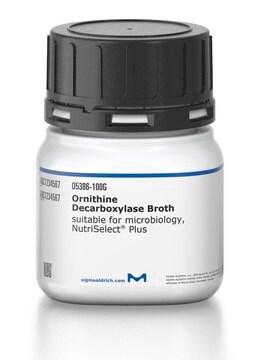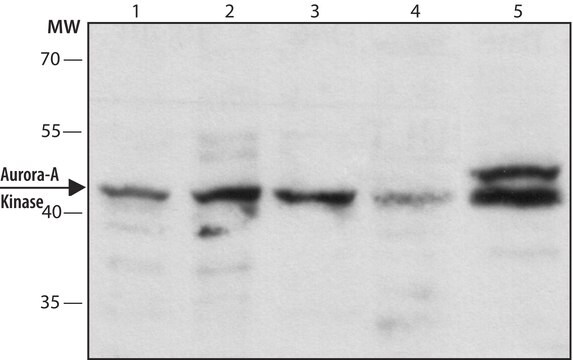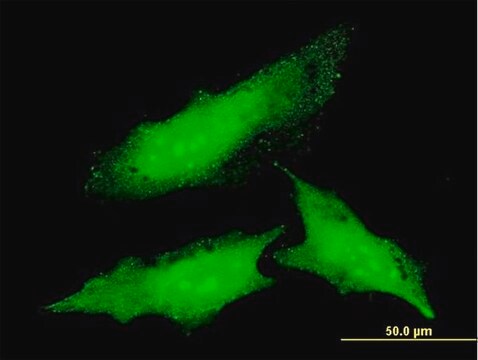O1136
Monoclonal Anti-Ornithine Decarboxylase (ODC) antibody produced in mouse
clone ODC-29, ascites fluid
Synonym(s):
Ornithine Decarboxylase Antibody, Ornithine Decarboxylase Antibody - Monoclonal Anti-Ornithine Decarboxylase (ODC) antibody produced in mouse
About This Item
Recommended Products
biological source
mouse
Quality Level
conjugate
unconjugated
antibody form
ascites fluid
antibody product type
primary antibodies
clone
ODC-29, monoclonal
mol wt
antigen 53 kDa
contains
15 mM sodium azide
species reactivity
human, mouse
technique(s)
immunohistochemistry (formalin-fixed, paraffin-embedded sections): suitable
immunoprecipitation (IP): suitable
indirect ELISA: suitable
microarray: suitable
western blot: 1:100
isotype
IgG2b
UniProt accession no.
shipped in
dry ice
storage temp.
−20°C
target post-translational modification
unmodified
Gene Information
human ... ODC1(4953)
mouse ... Odc1(18263)
General description
Specificity
Immunogen
Application
Biochem/physiol Actions
Disclaimer
Not finding the right product?
Try our Product Selector Tool.
Storage Class
10 - Combustible liquids
wgk_germany
nwg
flash_point_f
Not applicable
flash_point_c
Not applicable
Certificates of Analysis (COA)
Search for Certificates of Analysis (COA) by entering the products Lot/Batch Number. Lot and Batch Numbers can be found on a product’s label following the words ‘Lot’ or ‘Batch’.
Already Own This Product?
Find documentation for the products that you have recently purchased in the Document Library.
Our team of scientists has experience in all areas of research including Life Science, Material Science, Chemical Synthesis, Chromatography, Analytical and many others.
Contact Technical Service








